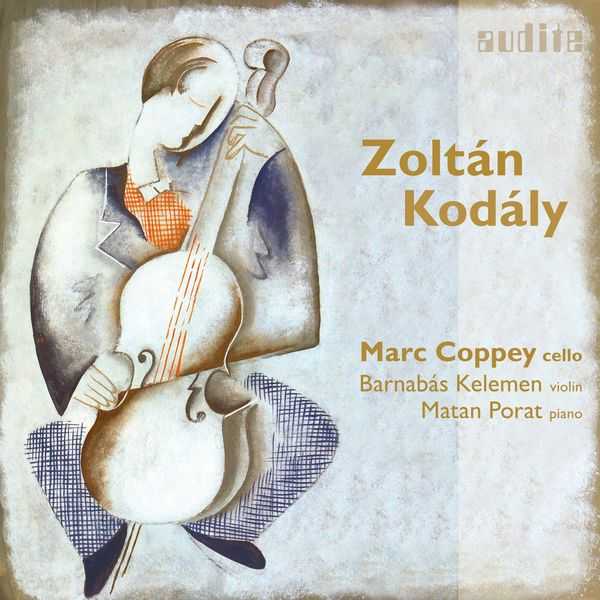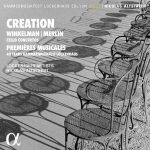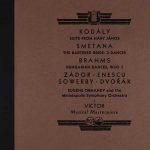

Composer: Zoltan Kodály
Performer: Marc Coppey, Barnabás Kelemen, Matan Porat
Format: FLAC (tracks)
Label: Audite
Catalogue: AUDITE97794
Release: 2022
Size: 1.5 GB
Recovery: +3%
Scan: yes
Sonata for Solo Cello, Op. 8
01. I. Allegro maestoso ma Appassionato
02. II. Adagio
03. III. Allegro molto Vivace
Cello Sonata, Op. 4
04. I. Fantasia
05. II. Allegro con Spirito
06. Sonatina for Cello & Piano
Duo for Violin & Cello, Op. 7
07. I. Allegro serioso, non Troppo
08. II. Adagio – Andante
09. III. Maestoso e largamente, ma non troppo lento – Presto
The common question as to who was the most important Hungarian composer of the twentieth century – Béla Bartók or Zoltán Kodály – would have been vehemently rejected by the two like-minded friends. On the one hand, they shared many ideas and goals, such as researching Hungarian folk music, which they recorded in the countryside before and after the First World War using a wax cylinder phonograph. Bartók and Kodály made the original music of the peasant societies, which has nothing to do with the idea of Csárdás fire and Puszta romanticism, the basis of their own idioms, which they further developed in very personal ways. On the other hand, the careers of the two composers progressed in entirely different ways. While Bartók embraced international modernism and went into American exile at the height of fascist rule in Hungary, Kodály remained in his home country even under politically difficult circumstances, devoting himself unswervingly to his great task: integrating music into the school curriculum in order to make it the basis of national consciousness and social behaviour.
The works that Kodály composed in this spirit during the interwar period now form part of the canon of orchestral and choral music – as for instance his Psalmus Hungaricus, the folk opera Háry János or the Dances of Galánta. But there is also a lesser-known Kodály who until 1918, almost unnoticed by the international music world, wrote chamber music whose boldness was met with much hostility in Hungary. At the centre of these works was the cello: the virtuosos emerging from the legendary master class of the cellist David Popper in Budapest introduced Kodály to the instrument’s expressive and stylistic variety. But even for the master cellists of his time, the Sonata op.4 with piano, the Duet op.7 for violin and cello and, above all, the challenging Solo Sonata op.8 were expeditions into new technical and musical territory. Unusual multiple stopping, breakneck runs and abrupt changes of mood, not to mention the narrative power and presence demanded in the monologues and dialogues, create enormous challenges for the performer.
The French cellist Marc Coppey, who recently received international acclaim for his recording of Dmitri Shostakovich’s cello concertos for audite, has invited two masters of their craft for this new recording of Kodály’s ground-breaking pieces: the Hungarian violinist Barnabás Kelemen, who after winning numerous prizes became a professor at the Franz Liszt Academy in Budapest at the age of twenty-seven, and the Israeli pianist and composer Matan Porat, a pupil of Murray Perahia and Maria João Pires at the New York Juilliard School, who today is an internationally renowned and sought-after chamber music partner and film composer.



